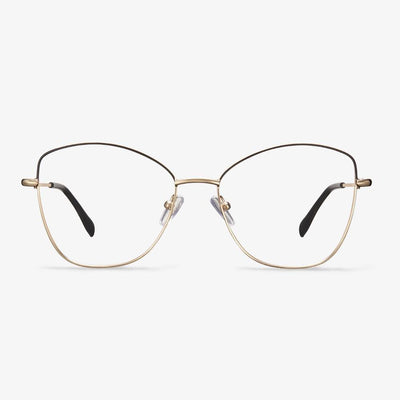Progressive lenses and single vision lenses
Single vision lenses are the most commonly used prescription lenses. This lens type has a single field of view or a prescription ability of the entire lens and can be used to correct myopia (nearsightedness) or hyperopia (supervision).
Progressive multifocal lenses are lenses with different upper and lower powers for the upper part to see far, and the lower part to see near. The distance from the fixed power above the lens to the fixed power below the lens does not change suddenly, but there is a gradual transition between the two through the gradual change in refractive power.
Transition Lenses Problems
Here, we will show you some common transition lenses problems.
Transition lenses are typically embedded with photo-sensitive chemicals or coated with similar films that produce the shading effect when exposed to light. This process makes the lens more expensive to manufacture and focuses on prescription glasses, thus raising the transition glasses cost. The transition lenses cost may be twice of the regular glasses lenses.
When you are driving with the transition glasses, they will fail to work. Car windshields typically come standard with anti-glare effects or films and laminates that break up some of the direct sunlight that enters the vehicle. This will reduce the transition lens effects, causing them to register a non-lit condition when the direct sunlight can actually be very bright.
The working principle of driving glasses
The driving glasses are designed according to the polarized angle and radian of the lens and the principle of precision optics. It can only let the beneficial light pass through, and other light sources, like strong sunlight, car headlights, and other light sources are filtered, to eliminate the interference of external light, and avoid the appearance of eye-catching, dazzling, and other situations. That's basically how the driver glasses are designed.
How to buy contact lenses online?
Choose well-known brands.Nowadays, the contact lens brands in the market are mixed, with the proliferation of inferior products, but there are still some authoritative and well-known ones, like Johnson & Johnson, Bausch & Lomb, which are products recognized by most users, and you can rest assured to buy them.
How to Test Computer Glasses (Clear Glasses)
First, we will show you how to test computer glasses with clear glasses.
1. Ask for Blue Light Glasses Brand Spectrum Report
To find out whether your blue light glasses are the best computer glasses, you should contact the company you bought them from and ask for a spectrum report. It will show you how much blue light your computer glasses can block.
After sending the spectrum report to you, you should make sure that your computer glasses are able to filter at least 30% blue light, otherwise, they are unsafe.
2. Use the Lens Reflection Test
As for how to test computer glasses, you can use the lens reflection test. You can see what color the light is that reflecting off the lenses.
If it reflects the blue light, they are filtering some blue light. If the reflection is violent or purple, the computer glasses may be not effective.
This is a good way for you to perform a blue light test at home.
1.67 vs 1.74 High Index Lenses: What Are Their Differences?
In this section, we will show you the differences between 1.67 high index lenses and 1.74 high indexes.
- 74 high index lenses are thinner and lighter than 1.67 high index lenses.
- 74 high index lenses are expensive than the 1.67 high index lenses.
- Both 1.67 and 1.74 high index lenses can reduce the eye distortion caused by strong prescriptions, 1.74 high index lenses perform better than the 1.67 high index lenses.
- As for the color of lens, both come in clear, gray-tinted and brown-tinted, but only 1.67 high index lenses come in Transition brown or gray.
- 74 high index lenses are better for those looking for the thinnest lens possible. So, patients with extremely strong prescriptions chooses this.
- 67 high index lenses are better for those looking to save money or those who do not have extremely high prescriptions. They are also the only choice if you are looking to get Transitions.
From the above information, you can find the main differences between these two lenses are price, thickness, weight, color options and general appearance. Most people who choose 1.67 high index lenses generally either do not have an extremely high prescription or are shopping on a budget. 1.74 high index lenses, on the other hand, are the thinnest and lightest plastic lenses currently in existence.
Convenience and timeliness.
The essential carrier of Mobile applications is the mobile terminals. As the name suggests, these mobile terminals are not only smartphones and tablets but smart glasses, watches, clothing, accessories, and other kinds of personal belongings. They are part of what the human body wears and can be used anytime, anywhere. People can make full use of the fragmented time in life and work to accept and process all kinds of information on the Internet. They can no longer worry that they will miss any vital information, time-lapse information.











































